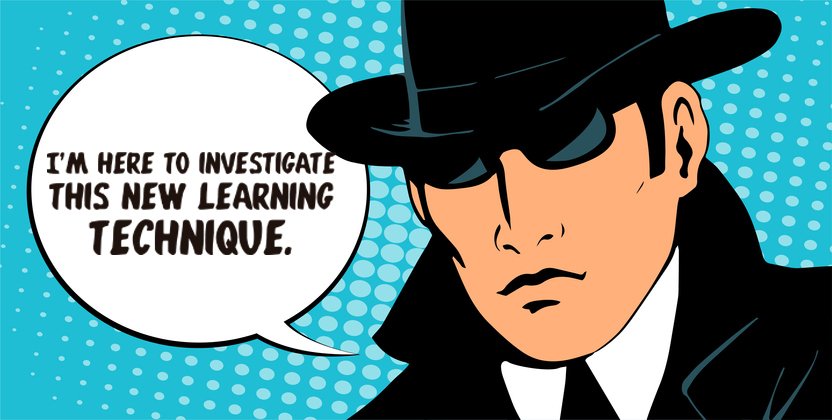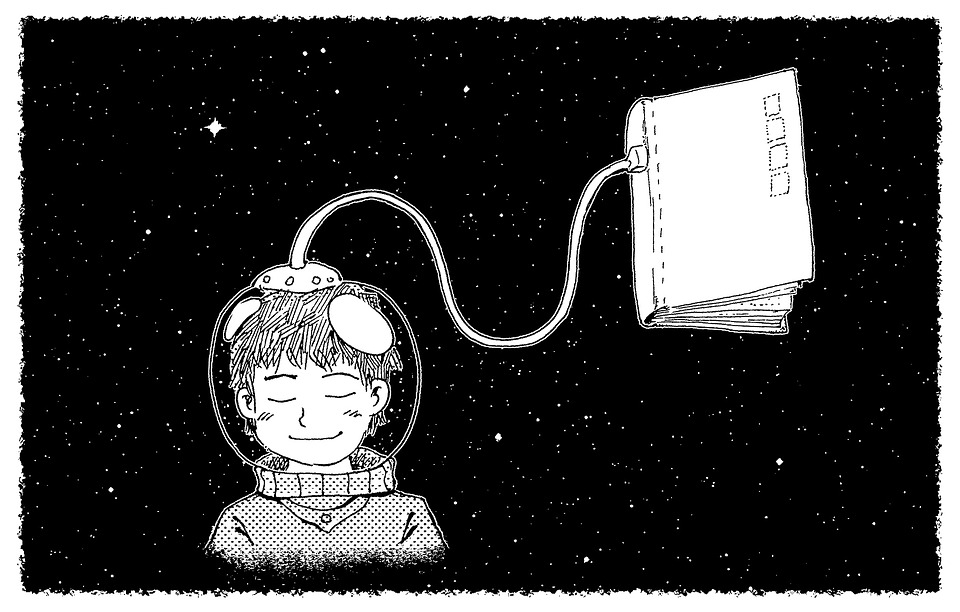By Anna Tsekani,
In recent years, more and more people try to examine and enhance new educational methods as a way of reinforcing soft skills and, at the same time, as a vehicle for popularising and communicating different concepts of sciences. Comics, not only due to social stigma, but also due to the perceived juvenile nature, have been forgotten and neglected until recently. Yet, comics are gaining attention day by day even more, and researchers have started to examine the use of comics in education and how comics function as a medium of communication. The key is to examine comics as a means of knowledge transfer, instead of a means of wasting time in order to exploit any potential offered option.
Comics have been since time immemorial a thorny issue, not only due to the examination of the educational abilities, but also due to the debate over the definition of comics. The debate over the definition of comics may appeal to difficulty due to the simplicity of comic structures but focuses on whether comics are a language in themselves, a medium of communication, or a form of communication written in a visual language.
Comic books are magazines containing sequences of comic strips and a narrative medium used to express ideas with images, and they are often combined with text or other visual information. It can also be considered a form of storytelling, since comics are a sequence of static images which present a story. Comics have been and still are the most popular and traditional reading option among children, since they combine pictures and texts at the same time and are more appealing than traditional educational approaches. Due to these factors, the educational abilities and possibilities of comics are, most of the time, examined and questioned.
Comics appeal as an alternative educational method but at the same time with respect to the suitability for educational purposes, as it is the perfect vehicle for learning and practicing a colloquial language. Studies have shown that reading comic books offer a structure and a guide for processing information, as it combines both words and images. The combination of images and words fosters students’ imagination and enhances both visual and verbal abilities. On top of that, comics can be a crucial and helpful source to train the brain in visual and verbal activities, and thus improve cognitive skills, critical thinking, cooperation, and meaning-making.

It is vital to point out that comics could appeal as a beneficial tool for people with specific learning disorders (SLD) such as dyslexia. Studies have shown that the combination of pictures and texts enhances the understanding of several topics and fosters further connections between new information and the already existing knowledge.
In all the previous-conducted studies, it is concluded that there is a positive impact of comic strips in teaching and learning. Digital comics could be constructed in an easier way using comic strip creator tools, thus avoiding the tedious process of designing pictures. But do the available comic tools provide the right functionality to successfully implement an educational scenario? Studies have shown that comics can easily improve vocabulary, and exercise writing skills and at the same time, digital comics improve further social skills of students through collaboratively work. The key is to confront comics as a means of knowledge transfer rather than criticizing the nature of this medium.
An interesting aspect of comics is the usage in understanding difficult and different fields of science. Recent sciences have shown that teaching methods with the use of comics are more effective than traditional teaching approaches. To be more specific, a traditional teaching approach was compared to a teaching method using comics, related to the understanding of concepts in economics. The pre-conceptual understanding of economics was used as a covariate in both cases. The comic book approach proved to be superior to the traditional method and provided a better explanation of the concept.
Studies and experiments had also been conducted in order to examine the use of comics in communicating different sciences inside the classroom. In extension, a Batman comic was used in order to populate concepts of exercise science, neuroscience, psychology, and translate science into terms that are more interesting and accessible to the general public and nonacademic population.

However, the intent of knowledge is twofold: on the one hand to educate and on the other hand to accommodate. Sometimes it can be difficult to strike a balance between these two goals, but comics, and especially the creation of effective science comics, promise to be the growth area of the future. Through such research and collaboration, the maximization of the educational impact of this popular and potentially powerful medium will be achieved.
Yet, due to the fact that there is still a distinct lack of studies and data supporting the efficient values of comics in science and in transferring information, future research must be more focused on comics in education and, at the same time, be engaged with educationalists, in order for studies to be more inductive and explorative. Plenty of techniques has been inserted in order to achieve the best educational target. The key to the evolution of education could be through the implementation of comics, as a vehicle of knowledge, instead of a non-preferred educational method. On top of that, studies should also focus on the examination of the potential positive or negative impact of comics as a knowledge transfer in several centers of education.
References
- Comics for Education: An engaging teaching and learning approach, logopsycom.com, Available here
- Andrew Smith, Comics: Everything you need to know to start teaching with comics!, University of Lethbridge, 2006, ulethbridge.ca, Available here
- Using Comics to Teach the 4 Cs, edutopia.org, Available here

![Heroe2+[Convertido] 01](https://www.offlinepost.gr/wp-content/uploads/2022/05/Heroe2Convertido-01.jpg)


